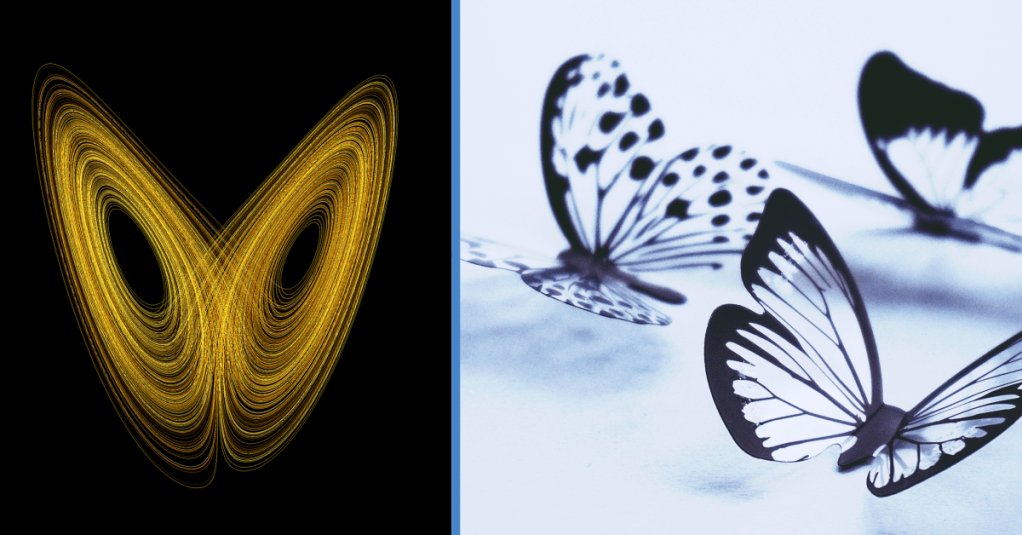Trending Now
Travis Scott’s lead single “BUTTERFLY EFFECT” might make for a great title, but it doesn’t offer the best theoretical explanation.
That’s right, the butterfly effect is a real vessel of chaos theory, but it doesn’t entail what you might think.

Image Credit: howstuffworks
The idea suggests that seemingly insignificant events can eventually lead to much more impactful consequences. For example, something as small as a butterfly flapping its wings in Russia might lead to a catastrophic tornado in Kansas – hence the theory’s name.
So, Travis Scott song actually gets the butterfly effect completely wrong. Scott seems to insist “For this life, I cannot change,” but the entire theory is based on constant change.
The theory was actually developed in the 1960s by meteorology professor Edward Lorenz while he was teaching at MIT. Lorenz created a model that showed how two points near each other could end up with vastly different weather conditions within hours.
Previously, meteorologists believed that weather could be predicted by looking at historical records. Lorenz’s discovery proved that it was essentially impossible to predict weather in this way. His model showed that there were too many variables to rely on past data.

Image Credit: Wikimedia Commons
Therefore, our common understanding of the butterfly effect is skewed.
Though we might think that the theory means small changes can lead to big results, in actuality, Lorenz’s theory insists that tracking these changes and their effects is impossible. The reach of the butterfly effect spans far beyond weather; it also touches upon when you get your groceries, the people you make small talk with, or even what route you decide to take to work. Every small action we do has the potential to change our lives.
However, we have no way of knowing which choices caused what changes.
We’re basically moving through one giant ripple effect that we can’t even see.

Image Credit: Wikimedia Commons
So, it looks like we have even less control over our lives than we thought! That’s so horrifying that I want to forget that I ever learned it. T
ime to obsessively repress that information while we all get on with the rest of our day! Or maybe we’ll dwell on it and spiral.
What’s your experience with the butterfly effect?
Share with us in the comments!






